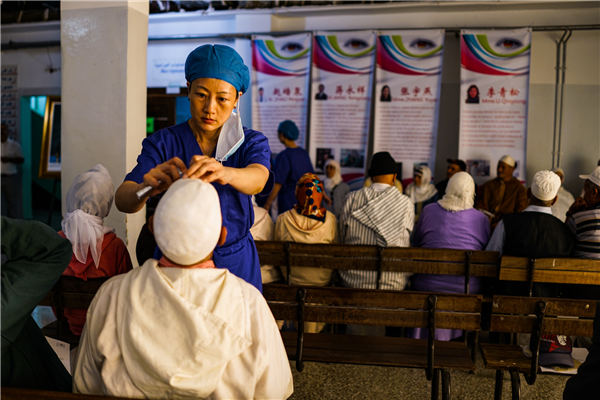Fudan's worldview
By Cao Chen | China Daily | Updated: 2018-10-10 07:25

She has since devoted her time in Fudan to China's new economic policy and Sino-India relations.
"I hope to be able to better explain the relevant policies of the two countries, and to make a contribution to mutual understanding between the two governments," says Kochhar.
To help people to speak foreign language, like Kochhar, who is curious about China and its culture, Confucius Institute branches are gradually springing up at Fudan's partner universities overseas.
As the initiator and dean of Confucius Institute at the University of Auckland in New Zealand, Zhou Bing, also a professor of history at Fudan, says: "The institute is bridging the cultural gap between the two countries and trying to foster a research and teaching environment free from national boundaries."
Until 2017, the institute has enrolled 130,000 international students in Auckland, a city with a total population of less than 1.5 million. Cultural activities held by the institute have attracted more than 200,000 participants, Zhou adds.
Fudan has participated in advancing the establishment of seven Confucius Institute branches globally - including the one in Auckland - three of which have been evaluated as exemplary Confucius institute models in the world.
Academic cooperation is another vital element to achieve the goal of building a world-class university of excellence.
For instance, the Institute of Science and Technology for Brain-Inspired Intelligence at Fudan University has cooperated with foreign universities, like Cambridge University and Oxford University, on achieving outcomes that benefit artificial intelligence algorithms, intelligent diagnosis of brain diseases, brain-analogous chips and new medicine development.
Superior research has laid the foundation for the university's contribution to the world beyond academic circles, and shows humanitarian concern to countries in need. For example, in 2017, hospitals affiliated to Fudan University sent three medical teams of 30 people to Pakistan, Morocco and Madagascar to provide medical assistance.
Lu Hongzhou, a professor specializing in infectious diseases at Shanghai Public Health Clinical Center affiliated to Fudan University, is among those who have battled the outbreak of the Ebola virus in western Africa.
Lu taught locals about how to prevent and control the Ebola virus, and compiled textbooks in English for training doctors, as well as information pamphlets for the public.
He was praised by the local African government and international organizations.
"It is my job as a doctor to cure diseases and save patients, regardless of their gender or nationality," says Lu.
"There is more to do in the future."
























